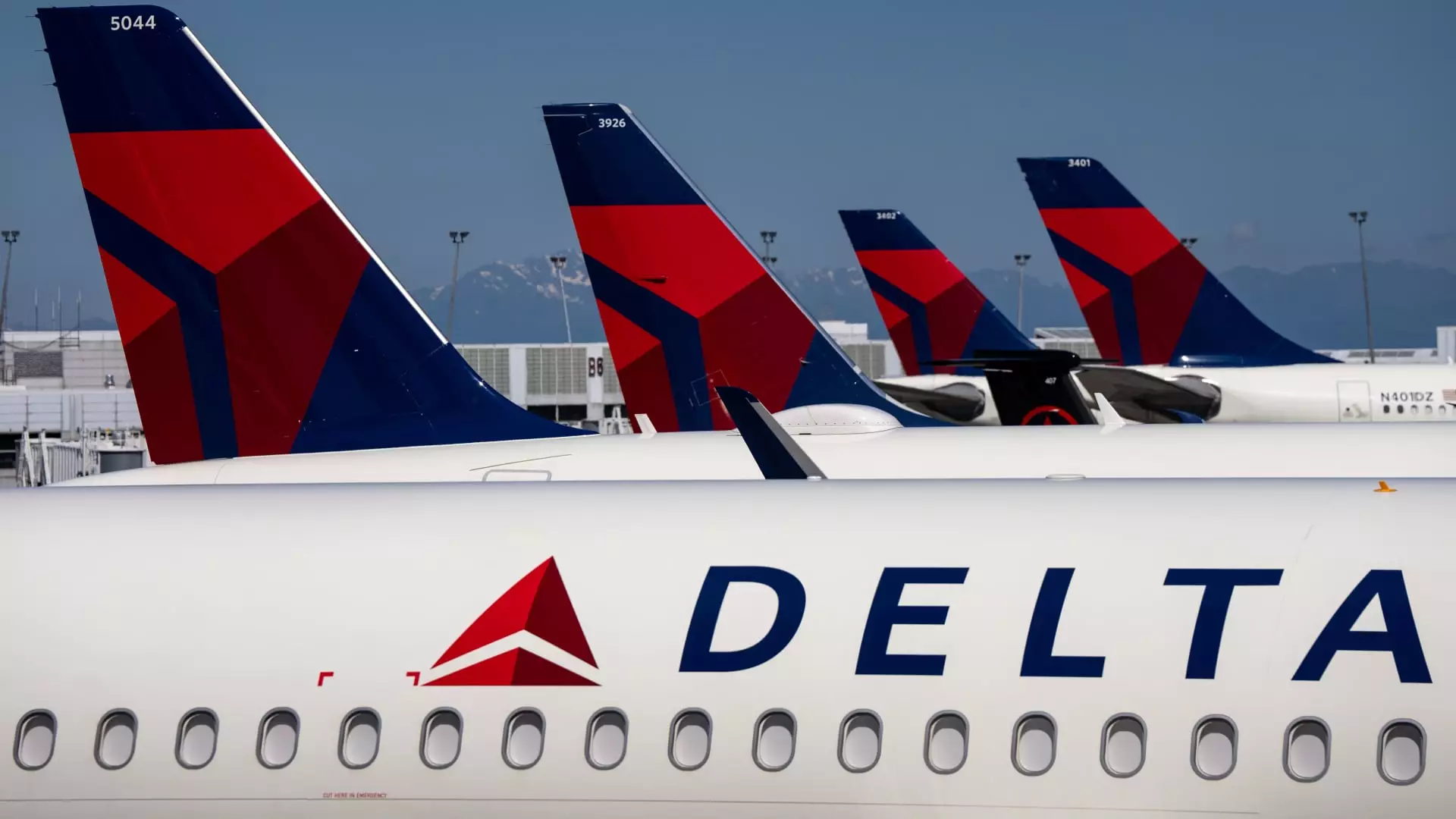Delta Air Lines has recently unveiled a critically alarming forecast that highlights a significant decline in consumer confidence, attributed largely to the shifting winds of President Trump’s trade policies. What was once a projected expansion in flight capacities for the latter half of the year has now been retracted, showcasing a substantial shift in strategy as the airline grapples with disappointing bookings. The dire prediction of a revenue drop of up to 2% against prior expectations paints a gloomy picture not only for Delta but for the entire airline industry. It’s vital to recognize that Delta, as the most profitable U.S. airline, has the potential to set benchmarks, thus signaling trouble ahead for all carriers.
As CEO Ed Bastian articulated, the “wrong approach” taken by the administration has exacerbated uncertainty among both consumers and corporations. This commentary serves as a profound indictment of current policies that seem to prioritize short-term gains over sustainable growth. The corporate sector is beginning to reassess its investments in travel, with companies canceling business trips as they navigate tighter budgets. This raises an urgent question for policymakers: are the current trade practices and economic policies truly conducive to fostering a healthy marketplace?
Corporate and Leisure Travel: A Precipice of Insecurity
The dual focuses of corporate and leisure travel are critical indicators of economic health, and recent data suggests that both sectors are floundering. Despite January bringing some hope, it seems that consumer sentiment shifted dramatically by mid-February. The reliance on robust travel demand has now become a precarious foundation on which Delta and its competitors stand. Analysts have been quick to revise their earnings forecasts for airlines, signaling an alarming trend that suggests the industry’s optimism may be more fragile than previously thought.
Those in positions of power must take heed: when a leading airline publicly acknowledges a downturn, the implications are far-reaching. Whether it’s a corporate retreat abandoned or a family vacation postponed, the ripple effect could spell disaster for ancillary services, from hotels to local economies reliant on tourism. The narrative of strong consumer spending has quickly mutated into one of anxiety about economic stability.
The Illusion of Resilience in Premium Travel
Bastian pointed out that while mainstream travel bookings have weakened, international and premium travel segments remain somewhat resilient. However, one must scrutinize the viability of this assertion. Premium travelers may be holding on tighter to their wallets, conscious of economic indicators indicating a downturn. It is concerning to assume that affluent travelers alone would be able to sustain an industry that thrives on volume.
The seeming resilience of premium and international travel could serve as a bandeau for deeper economic wounds—an illusion that obscures underlying fragility in the broader travel market. Businesses should not be lulled into a false sense of security by this segment’s perceived strength. The reality is that if the economy falters, premium travelers will also reconsider their spending, jeopardizing the very foundation of what Delta deems ‘resilient.’
Protecting Margins in Economic Turmoil
Delta’s pivot away from expanding its flight capacity points to a strategic move aimed at safeguarding its margins and cash flow. The decision reflects a prudent approach, as businesses must focus on preserving economic viability in the face of an unpredictable landscape. This aligns with wise business practice; however, it also reveals a troubling trend of caution that could inhibit growth.
The airline industry operates on thin margins, and substantial shifts in consumer behavior necessitate a nimble response. Delta’s shift to flat capacity growth year over year underscores a burgeoning apprehension about the future. Is this the beginning of a new normal—where airlines find themselves in a constant state of assessment rather than growth?
In upcoming earnings reports from competing airlines like United and American, one must anticipate similar warnings. The fate of these carriers hinges on an economic climate that is rapidly changing and fraught with uncertainties. As rising costs and uncertain demand intertwine, stakeholders will need to challenge existing paradigms and pursue innovative approaches if they wish to avoid being left behind amidst the turmoil.


Leave a Reply